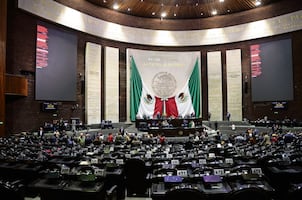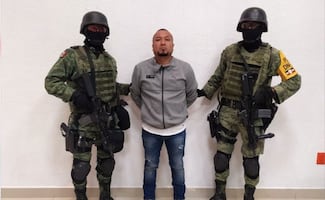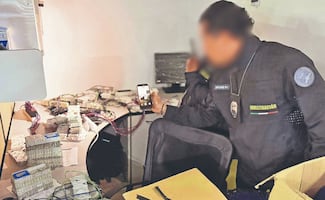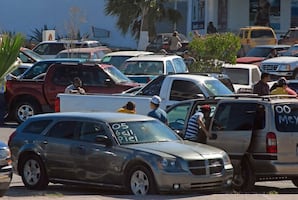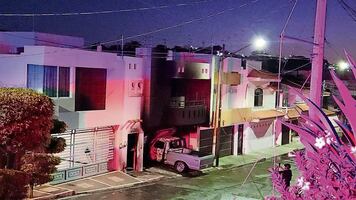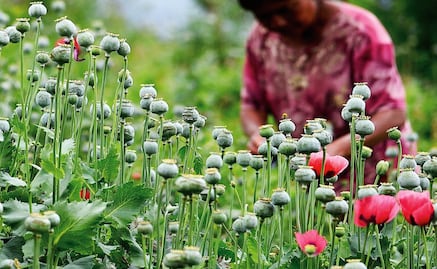Más Información

Alito Moreno afirma que México debe ser aliado de EU ante dictaduras como la de Maduro; "¡Venezuela libre ya!”
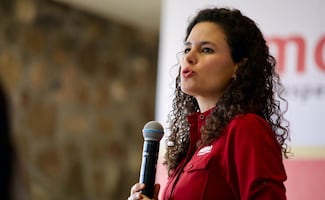
Morena va contra “Ley Esposa” en SLP que postula solo mujeres en 2027, señala Alcalde; prepara acción de inconstitucionalidad
A neon light in the shape of a needle marks the spot. The service is open to everyone and people need only register and follow the rules: To carry a minimal amount of drugs without sharing or selling the substance. It is also forbidden to exchange needles.
On the tables of each cabin, similar to cyber cafes , there are several instruments, a trashcan, and a sign with information on the parts of the body where consumers are advised to apply the shot. This hallway of supervised consumption was designed by the Social Verter Integration organization and it is the first of its kind both in Mexico and Latin America , meant for users of heroine and crystal methamphetamine to consume drugs in a safe environment.
“The strategy came from a damage reduction program for people who inject themselves with drugs. We have been offering this type of service for more than ten years in Mexicali. We offer new needles, as well as free tests for HIV, hepatitis C , and pregnancy, among other things,” stated Said Slim Pasarán , a coordinator of social programs at Verter.
Another factor that gave birth to the social assistance program was the need to attend a specific sector of society. According to Verter, there are between 3 and 5 thousand people in Mexicali who inject themselves with substances , which is why public spaces are often occupied by drug addicts who use them as clandestine places to shoot drugs.
“These places are well known in Baja California, Sonora, and Chihuahua . They are usually public and abandoned places. Local authorities don’t even try to go in, everyone despises them,” he tells.
Not a crime in itself
According to the National Survey on Drug, Alcohol, and Tobacco Consumption 2016-2017 , Baja California, Jalisco, and Quintana Roo showed the highest rates of illegal drug consumption .
Within these “ picaderos ” (places to shoot drugs), there are usually homeless people and others who have chosen to live in said places for commodity. “Many tragedies happen in these places: Deaths from overdose, hepatitis C and HIV transmission. Some women even give birth in places like these,” Pasarán explained.
Faced with this panorama, Said, who is a social anthropologist; Lourdes Angulo Corral, public administrator, and Jaime Arredondo, PhD in public health from the University of San Diego , decided to create the first supervised consumption facility in Mexico and Latin America .
The organization recovered a place next to their community center after speaking with the land owner. It was an abandoned lot that people used to inject themselves. Since May, following a study of focus groups, they began preparing the pilot program .
“We looked into legal and technical requirements and spoke with members of ministries for legal advice. Ours is a nonprofit initiative and there is no need for users to request for health permits or anything of that kind.”
“It is not a crime for a person to carry a minimal amount of drugs. We do not sell or distribute illegal substances, but only supervise consumption and offer services so that people enjoy health and their fundamental human rights,” Said claimed.
dm
Noticias según tus intereses
[Publicidad]
[Publicidad]






